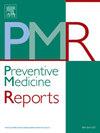“The stroke has already happened. You can't undo what has happened” emotions, coping, and adjustment in the experiences of southeast Asian people living with stroke - A qualitative study
IF 2.4
3区 医学
Q2 PUBLIC, ENVIRONMENTAL & OCCUPATIONAL HEALTH
引用次数: 0
Abstract
Objective
People living with stroke (PLWS) must cope effectively to facilitate the ideal conditions for adjustment and rehabilitation. Cultural values can greatly shape how an individual may cope and adjust to these changes. Considering the absence of published literature documenting how PLWS cope in the local Singaporean context, it becomes crucial to explore the emotional dimensions and cultural factors that shape their experiences. This study aimed to delve into the emotional aspects of PLWS, elucidating the lived experiences and understanding their coping approaches for post-stroke adjustment.
Methods
This study used a qualitative phenomenological approach with semi-structured interviews in Singapore (February 2020–March 2022) among twelve first-stroke participants discussing life changes, emotions, and coping strategies post-stroke. Thematic analysis was conducted.
Results
Four main themes emerged: 1) Internal emotional experiences amidst adversity and uncertainty; 2) Relational experiences of dependency and external support; 3) Age-related differences in experiences of peer support; 4) The importance of self.
Conclusions
PLWS in Singapore face unique emotional challenges influenced by local cultural values, emphasizing self-responsibility and self-management. Younger individuals struggle with unmet social and employment needs, while older individuals experience fewer such issues. Enhancing mental health support, promoting self-management, and increasing employer awareness could improve emotional adjustment and coping in post-stroke recovery. Addressing both psychosocial and cultural factors through targeted interventions and policy initiatives could help prevent post-stroke-related medical conditions in Southeast Asia. A comprehensive approach integrating holistic healthcare, supportive workplace policies, and community-based resources may facilitate better post-stroke adjustment and, in turn, improve long-term health outcomes.
“中风已经发生了。“你无法挽回已经发生的事情”——东南亚中风患者的情绪、应对和调整——一项定性研究
目的脑卒中患者必须有效应对,为适应和康复创造理想的条件。文化价值观可以极大地影响个人应对和适应这些变化的方式。考虑到缺乏公开的文献记录PLWS如何在新加坡当地环境中应对,探索塑造他们经历的情感维度和文化因素变得至关重要。本研究旨在探讨卒中后精神残疾者的情绪方面,阐明其生活经历,了解其卒中后适应的应对方法。本研究采用定性现象学方法,在新加坡(2020年2月至2022年3月)对12名首次中风的参与者进行了半结构化访谈,讨论了中风后的生活变化、情绪和应对策略。进行了专题分析。结果:(1)逆境和不确定性中的内在情感体验;2)依赖和外部支持的关系体验;3)同伴支持经历的年龄相关差异;4)自我的重要性。结论受当地文化价值观的影响,新加坡外籍人士面临着独特的情感挑战,他们强调自我责任和自我管理。年轻人在未满足的社会和就业需求中挣扎,而老年人则较少遇到此类问题。加强心理健康支持,促进自我管理,提高雇主意识可以改善卒中后恢复的情绪调节和应对。通过有针对性的干预措施和政策举措解决社会心理和文化因素,有助于在东南亚预防中风后相关的医疗状况。综合医疗保健、支持性工作场所政策和社区资源的综合方法可以促进更好的卒中后调整,进而改善长期健康结果。
本文章由计算机程序翻译,如有差异,请以英文原文为准。
求助全文
约1分钟内获得全文
求助全文
来源期刊

Preventive Medicine Reports
Medicine-Public Health, Environmental and Occupational Health
CiteScore
3.90
自引率
0.00%
发文量
353
 求助内容:
求助内容: 应助结果提醒方式:
应助结果提醒方式:


